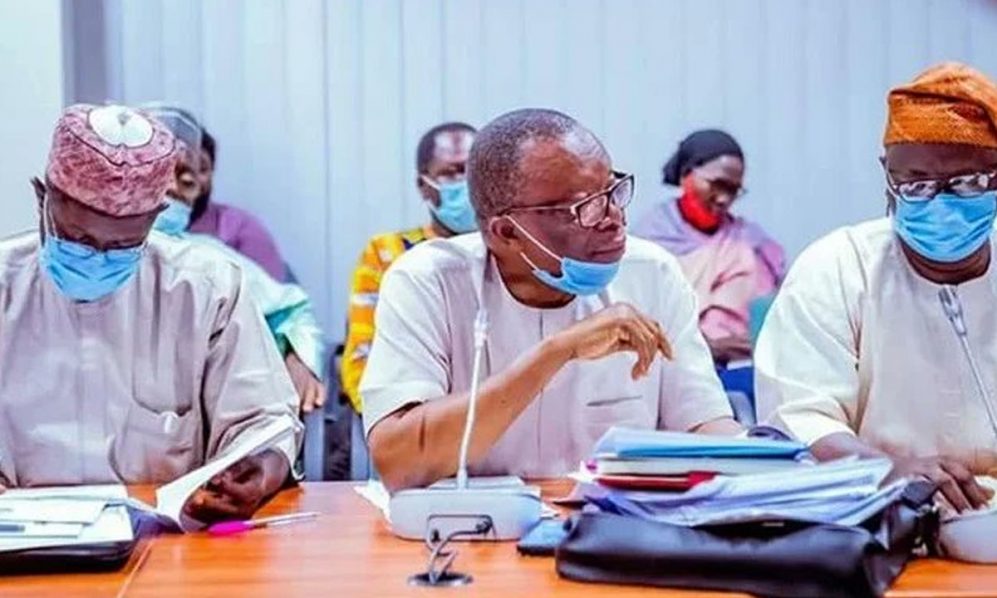
• ‘Govt Should Implement Sustainable Salary Structure’
• ‘Parties Need To Explore Alternative Dispute Resolution’
• We Are Taking Practical Steps To Address Issues, Says FG
Failed agreements, claims and counter-claims between the university teachers and the Federal Government, leading to incessant strikes and threats of industrial action have formed an unpleasant sequence that has characterised the nation’s public university system for several years.
Sadly, going by feelers from the ivory towers, this scenario that has disrupted academic calendars, putting destinies of many Nigerian youths in tatters, may be replayed anytime soon.
The fresh threat by the Academic Staff Union of Universities (ASUU) to down tools following government’s failure to accede to its demands may plunge the university system into another round of crisis, which may disrupt the fragile peace in the institutions.
President Bola Ahmed Tinubu had on assumption of office sought the cooperation of the workers’ unions in the universities to ensure a steady academic calendar. He promised to tackle all challenges confronting the sector and reposition it to meet global standards.
Tinubu said the government would establish synergy with all the academic unions and exhaust all avenues for dialogue before any strike, while enjoining them to cooperate with the government to deliver the needed development by ensuring an atmosphere of peace and tranquillity on campuses.
However, almost 15 months after Tinubu came on board, ASUU has continued to lament the unyielding response of the government to the plight of its members. The union said it was regrettable that despite the agreement between it and the Federal Government, the government has failed to meet its demands.
ASUU highlighted some of the unresolved issues as non-injection of revitalisation funds as agreed and also appropriated for in the 2023 budget, and in line with the Needs Assessment Report into the system; proliferation of both federal and state universities without financial support; the prolonged delay in renegotiation of the 2009 agreement; and the continuous use of ‘deceptive’ Integrated Payroll and Personnel Information System (IPPIS) as an emolument payment platform.
Others are the continuous delay in the payment of Earned Academic Allowances (EAA), and the continuous use of Treasury Single Account (TSA) for university operations.
The National President of the union, Prof Emmanuel Osodeke, said ASUU was tired of dwelling on the same issue every year, negotiating and renegotiating, with mutual agreements reached and signed on each occasion but government consistently reneging on its own terms.
Although the Federal Government announced the exclusion of ASUU and other unions in the nation’s tertiary institutions from IPPIS, the university teachers said they were still being paid based on the alleged flawed platform.
ASUU had, last month, held protests across the various institutions to draw people and government’s attention to their plight, specifically warning that it might initiate a nationwide strike following Federal Government’s failure to meet its demands.
Part of President Tinubu’s effort at solving the problems of the tertiary education system is the assent to the Access to Higher Education Act, also known as the Student Loan Act, which is being implemented already.
ASUU’s demands not yet met
INDEED, it has been a ding-dong affair between the university teachers and the Federal Government over the years. The current planned strike would no doubt worsen the already chaotic academic calendar, which has always remained one of the casualties of ASUU’s incessant strikes.
The draft renegotiated FGN-ASUU agreement has remained unsigned, while government is yet to release the white paper on reports of visitation panels to the universities. It has also not delivered on the promised balance of one tranche of the revitalisation fund, and the outstanding two tranches of the EAA. Besides, nothing has happened on the promised support for amendment to the law of the National Universities Commission (NUC) to stem the tide of proliferation of universities, especially by the state governments, and the nation’s allocation to the education sector still falls below 26 per cent as demanded by ASUU.
Osodeke, who noted that the agreement between the union and the government has lingered for over six years, said the academic allowances due to ASUU members had also accumulated over the years and nothing was being done about it. “Since 2013, only one has been paid. We need revitalisation funds to upgrade our universities to standard so that we can have students and lecturers from outside the country,” he said.
Osodeke advised the government to stop the proliferation of universities, lamenting that many new universities were approved without funds to run them. Underfunding of the education sector, over the years, has had collateral effect on the country. The universities, hitherto exemplary centres of excellence that attracted academics from far and near, have become grotesque carcasses of their former selves. The deplorable education system has forced privileged Nigerians to send their wards out of the country for studies.
A report released last year put the figure of what Nigeria loses to overseas studies at N1.5 trillion per annum. It could be higher. Embarrassingly, countries like Ghana, Uganda and Benin Republic that were hitherto considered far below Nigeria in all respects, have now turned to be our saving grace to educate our people.
Ghana alone is estimated to be benefitting about N160 billion from hundreds of students from Nigeria, while those who should act to better the system of education send their children to choice universities around the world, as the result at home is a further nose-diving of what remains of the quality in the universities.
A committee headed by erstwhile Executive Secretary of the Tertiary Education Trust Fund, Prof Mahmood Yakubu, which conducted a need assessment of universities, came up with a report that unearthed the odious rot in the system. The report, which was commissioned by the government itself, blamed it all on the appalling condition of the universities, both in human and infrastructural terms. While the teacher-student ratio stands on the average at the embarrassing figure of 1:100, basic teaching tools in laboratories, workshops and libraries were discovered to be either grossly inadequate or non-existent.
In most, if not all, universities, students have no adequate hostel facilities while some defecate in the open, due to absence or inadequate toilet facilities.
These same students, according to the report, take lectures in jam-packed lecture halls and theatres. Among the consequences of this neglect of the education system is the soaring number of half-baked graduates coming out from these institutions.Though the teachers could not be absolved of blame in this, it is, however, only fair to expect a good result when the condition for good performance is set.
FG’s offer
EDUCATION Minister, Prof Tahir Mamaan, has disclosed that government can only afford a 23.5 per cent salary increase for all categories of workers in federal universities, except for the professorial cadre, which will enjoy a 35 per cent upward review,
The government said allowances that pertain to ad-hoc duties of the academic and non-academic staff should be paid as and when due by the governing councils of the universities to which such services are rendered, and to the staff who perform them.
The government proposed N150 billion to be provided for in the 2023 budget as funds for the revitalisation of federal universities, although it is yet to be paid.
Rather than wait for things to degenerate, stakeholders appealed to the government to dialogue with the aggrieved lecturers and find ways of peacefully resolving the crisis without letting things get out of hand.
Experts advised that to decouple Nigerian universities from strikes, a genuine commitment to dialogue, collaboration, and sustainable fixes is essential to allow the higher education sector to reach new heights.
ASUU Chairman, Nasarawa State University (NSUK), Keffi chapter, Prof Samuel Alu, who warned that the planned strike would be total, lamented that the salary structure of academics has not changed since 2009 and efforts to make government see reason has proved abortive.
Alu, who accused the government of abandoning the 2009 renegotiated agreement by the Nimi Briggs committee, expressed dismay that a university professor earns the same salary for over 15 years.
Alu also disclosed that the N170billion EAA budgeted for in the 2023 budget is yet to be released. “In a nutshell, salary structure of university workers has not changed since 2009. These were committees set up by the Federal Government. We had panels chaired by Wale Babalakin, Emeritus Professor Munzali Jibril, and the late Briggs, who finally submitted their reports to the Federal Government. We are underpaid, and what the Nimi Briggs committee proposed is already belated because the Federal Government in 2019 raised the minimum wage from N18, 000 to N30, 000; this year, they have moved it to N70,000 and ASUU is still where it used to be since 2009.,” he said.
According to Alu, after the expiration of the 21-day ultimatum, the union would reconvene and assess the impact before declaring the next line of action.
On her part, a public affairs analyst, Michelle Opeyemi urged the government to fulfil its commitment by implementing all pending agreements with the university workers. This, she said, would foster peaceful industrial relations and avert future industrial actions in tertiary institutions.
According to her, resolving lingering strikes in Nigerian universities would require a multi-faceted approach. She noted that it would require open and honest dialogue between ASUU and the government to address the union’s demands and concerns.
Apart from regularly paying salaries and implementing a more sustainable salary structure, Opeyemi urged the government to increase its funding to tertiary institutions to enable universities address infrastructure and resource deficits.
“Both parties should explore alternative dispute resolution and create a sustainable plan to address the underlying issues driving the strikes. By taking these steps, the government and ASUU can work towards a lasting resolution to the strikes and improve the quality of education in Nigerian universities.”
Former Head of Department, Mass Communication, University of Ilorin (UNILORIN), Dr. Lambe Mustapha, wondered why government should wait for the union to declare strike before considering their demands. Mustapha urged concerned stakeholders to activate consultations to address some of the grievances of the union, adding that it was wrong to wait till things degenerate into fracas before doing the needful.
The Vice Chancellor, Lagos State University of Education (LASUED), Bidemi Lafiaji-Okuneye, urged the government to demonstrate serious commitment within the timeframe given by the academic union. She noted that implementation has always been the major challenge of every successive government when it comes to ASUU demands.
In his submission, convener, Education Rights Campaign (ERC), Hassan Soweto, noted that another strike at this time will not only disrupt the academic calendar, it will also have negative impact on the students. To reposition the education sector, Soweto said government must honour the demands of the union.
When contacted, the Director, Press and Public Relations, Federal Ministry of Education, Folasade Boriowo, expressed the commitment of the government to averting fresh industrial action by university workers.
Boriowo, who said the government had taken practical steps to address specific salary issues of the academic staff, however, did not give details of the concrete steps taken by the government to meet the demands of the union.
In her words: “We have been engaging the various unions and putting together mechanisms for considering the various issues. The Federal Government has taken practical steps to address the specific salary issue.
“We should all be patient. The government is determined to have a suitable environment and welfare for our staff to keep our schools open.”






